Fathers and Sons: number of orphans in Russia reducing, as well as number of adoptions
About how the crisis, decline in birth rate and large payments for guardianship have affected name change, paternity establishment and the desire to adopt an orphan in Russia
The analytical service of Realnoe Vremya, having studied ''family trends'' in Russian society, has found out why the number of those wishing to change their name after the crisis and the desire to establish paternity has fallen by almost 20% over 4 years (a small clue – it's all about a collapse in birth rate). At the same time, we tried to answer the question why the Russian authorities are trying to tighten the adoption process.
Name change is quite expensive — after the crisis the number of those who wished to do so is growing
Last year, the number of Tatarstan citizens who wished to change their original birth name or married name increased. In 2017, they were 1,800, and last year — by almost 200 people more. The main part accounted, of course, for Kazan. They were 827 in the capital of Tatarstan. In Naberezhnye Chelny — 368 people, in Nizhnekamsk — 130. As the Civil Status Division at the Cabinet of Tatarstan told Relanoe Vremya in response to our request, in 2018 the number of citizens' appeals to the registry office on state registration of change of last name, name or patronymic increased by 12,3% and amounted to 2,051 people.

Vogue for name change will grow, as law doesn't require a ''good reason'' for this
The most common reasons for last name change are divorce and its ''dissonance''. According to statistics, about 10% changed their name or last name for the reason of its dissonance. There are also those who wish to change their names in documents for religious reasons (when adopting another religion), or when marrying foreigners.
There is no data on who change the name, not the last name, more often — men or women. There is an opinion that when submitting the application it is necessary to specify a valid reason for name change (the dissonance of birth name or difficulties in its pronunciation, desire to bear the name corresponding to religious beliefs and nationality of the applicant), but actually, according to the article No. 58 of the Federal law ''On Acts of Civil Status'', the legislator doesn't establish the list of reasons which need to be specified when changing the name. There is only a limitation for those who have not reached the lawful age — name change of a child requires the consent of both parents, adoptive parents or guardian.
Apparently, it is the lack of need to explain that has led to the vogue for name change, ''to start life from a blank sheet'', which, as we see from statistics, is growing in Russia. And since any vogue requires money, it will decline only in case of economic crises.
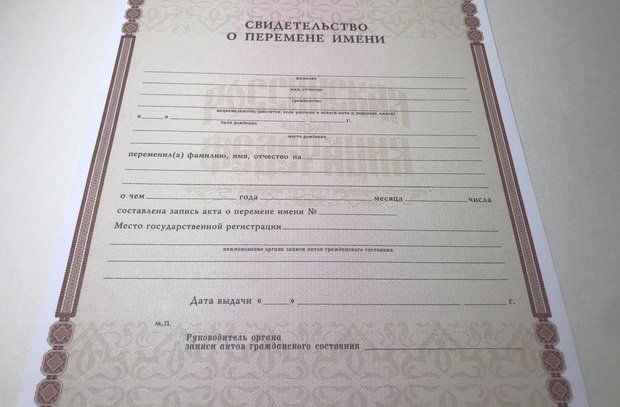
The number of paternity acts fell by almost 20% in 4 years
Tatarstan is also keeping up with the fashion by the dynamics of establishing paternity. In 2018, the number of acts of establishing paternity in Tatarstan fell from 6,300 to 5,900: 2,300 cases of which were citizens of Kazan. For comparison, in Naberezhnye Chelny, there were 906 cases.
In Russia, the number of acts establishing paternity has fallen by almost 20% over 4 years: from 323,200 to 264,400. And the reasons for this decline are likely in the decline in birth rate, which has been recorded in the Russian Federation and regions. Indeed, if 1,947 million children were born in 2014, then in 2018 — only 1,599 million. Thus, over 4 years the birth rate has fallen by 21,7% — which is comparable with the fall in the number of acts and the establishment of paternity (we already wrote about the population decline that began last year).
Women go to court bypassing the registry office to document the biological father as the second parent of the child, not the former spouse. Besides, the procedure for establishing paternity costs money, in particular, one of the most important components — child's DNA identification — costs about 10,000-20,000 rubles.
The DNA test is also used in cases when the father challenges the previously established paternity. The establishment of paternity by DNA through the court is considered to have greater accuracy and reliability: the correspondence of the genes of the child and the father is unconditional evidence and leads to the establishment of parental rights.
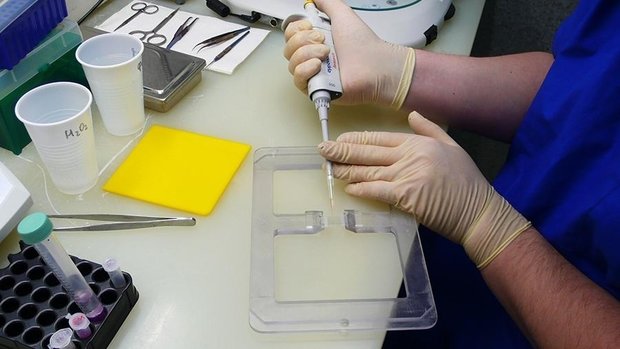
If a woman is married, the registry office automatically register her husband as the father of the child, although her lover has the right to challenge it in court.
The decrease in the number of paternity certificates correlates with the decrease in birth rate, which is contrary to another trend: people are less likely to register a marriage, and to make the child born to a couple without passport endorsement the heir they have to resort to DNA tests.
According to some experts, such couples will become more and more, so the demand will grow. However, the statistics does not confirm a growth of this demand. That is, the number of such marriages may grow, but those who have entered into them will not necessarily give birth to children.
The current popularity of DNA tests themselves is rather explained by another reason. They are used not only to determine paternity, but also out of pure curiosity (to know ethnic origin, to establish a genetic line, etc.). By the way, modern data show that only in one or two per cent of cases a man should doubt the origin of the child.
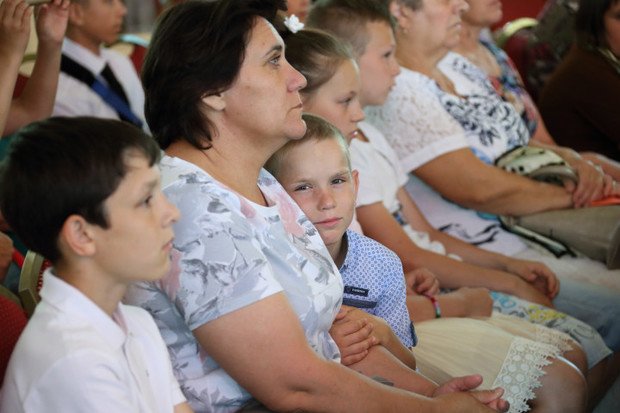
The number of orphans is decreasing as well as the number of adoptions – why?
We have already written about a decrease in the number of adopted children in Tatarstan. Let us remind that in 2018 there were adopted by 15,2% less children — 303. Most of the adoptions were in large cities — almost 190 children from orphanages went to urban families. Kazan families adopted 83 children, Naberezhnye Chelny's — 46, Nizhnekamsk's — 35, Almetyevsk's — 15, Yelabuga's — 10.
Tatarstan is also in the trend by the dynamics of adoptions: in recent years, there has been a tendency of their decrease in Russia. A year after the adoption of the Dima Yakovlev Law, which banned the adoption of Russian children by US citizens (in 2013, Americans at that time accounted for only 10% of adopted Russian children), the number of adoptions amounted to 17,500 and began to fall. In 2018, reducing by another 5%, it amounted to 13,000.
It is interesting that it seems to be at odds with other statistics: just after the adoption of the Dima Yakovlev Bill the number of children in orphanages has decreased dramatically. In 2013, there were 104,000 orphans, by the end of 2015 they were 60,100. By the beginning of 2019 — 47,000 children. Where did all these children go if the number of adopted children does not coincide with the number of missing children in orphanages? Apparently, most of them were not adopted, but were in foster families.
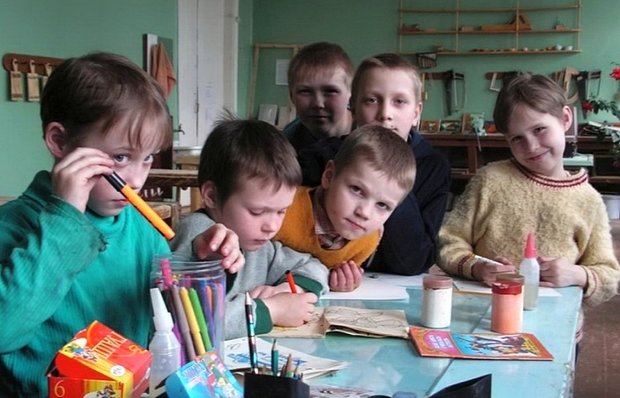
Guardianship registration is more profitable than adoption
It is believed that the decrease in the number of orphans is associated with the development of children placement system, the simplified procedure of adoption and the provision of tax benefits to foster families. After the ban on adoption of children by US citizens, the Russian authorities tried to compensate for the loss of this category of adoptive parents, increasing payments to Russians getting custody. Another factor was the decrease in the number of children falling into the field of view of the guardianship and custodianship agency. Let us note that the majority (80-90%) of children getting into orphanages are social orphans: they have living parents deprived of parental rights for one reason or another.
Indeed, from 2013 to 2017, the number of children in foster families increased by almost 60%. For comparison, in the crisis 2015 year 16,300 children were adopted, and 20,700 children went to foster families. In contrast to adoption, a foster family is a commercial form of guardianship, for which the state pays monthly, providing benefits and loans.
The decrease in the number of adoptions is explained by the fact that the adopted child becomes a full member of the family and, from a legal point of view, will be considered a family member. While a child in a foster family is entitled to benefits and allowances, and upon reaching the age of 18 or after graduation, the state is also obliged to provide him or her with an apartment, if he or she was not assigned any living space. So, most people choose a form of paid guardianship to improve the material level of the family, as well as to preserve the child's right to housing.
… which has led to ''certain excesses on the ground'' — the authorities will try to tighten the requirements of guardianship
Children placement in foster families due to the growth of payments for custody has become a profitable business in poor regions: it is quite possible to live on ''children's'' money, and a one-time payment for the child's guardian in most regions is not returned, even if they sent the child back to the orphanage. There were occasions when adults took several children, not caring about their welfare, health or education. This was ''the reverse side of the coin'' of the state's care for children.
To somehow deal with this, the ministry of education has recently completed the work on a bill that tightens the requirements for those who want to adopt or take guardianship of children. According to it, it is proposed to prohibit foster families to adopt more than one child a year, if we are not talking about the adoption of brothers and sisters. Initially it was proposed to limit the maximum number of children in the family to three (including natural and adopted). In addition, the ministry of education proposes to ban adoptive parents to change their place of residence at their discretion and plans to conduct a mandatory psychological examination of all adult members of foster families.
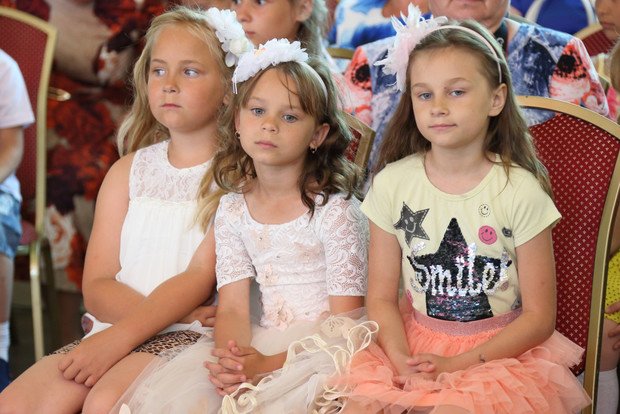
In the meantime, the situation is such that the number of adoptions (where, in fact, the benefits are less) since 2014 in Russia has decreased by 25% — about the same as in Tatarstan. The very same number of adopted in 2018, compared with the population of the regions, is negligible: Moscow adopted last year only 829 children, Moscow Oblast — 784, Krasnodar Krai — 476. In some large regions, the number of adoptees over four years has fallen almost twofold: for example, in Perm Oblast — 305 adopted in 2018 against 557 in 2014. The number of adopted children in Mari El decreased by 40%, and in Kirov Oblast — by 46%.